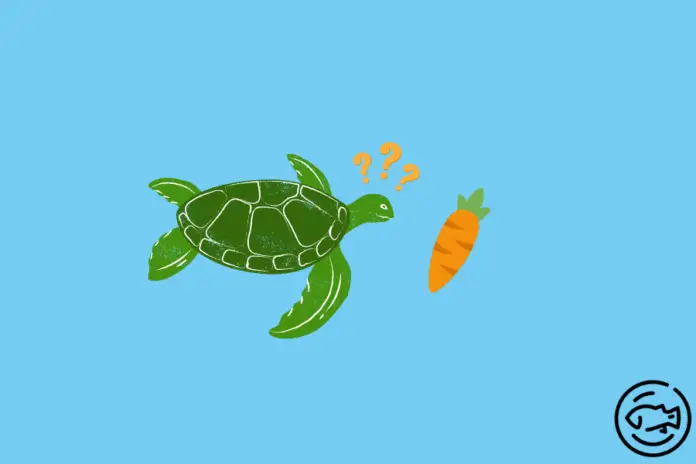Carrots, a root vegetable packed with plentiful vitamins and minerals, are recognized as safe for many animals, not just humans. But can turtles eat carrots?
Yes, turtles can eat Carrots, and almost all turtle species can consume carrots.
Not only are you able to give turtles carrots, but these nutritious veggies are highly beneficial for your turtle, and they relish consuming them. Offering carrots once daily can be an excellent method to ensure your turtle receives all the necessary nutrients.
To explore why carrots are such a fabulous vegetable selection for your turtle and how to serve them, continue reading. We also delve into other food items you should incorporate into your turtle’s balanced diet.
Discovering whether turtles can consume carrots will enable us to make informed decisions regarding caring for these amazing creatures. So, let’s delve into the topic and uncover the truth about turtles and carrots.
Carrots: A Nutrient-rich Vegetable For Turtles
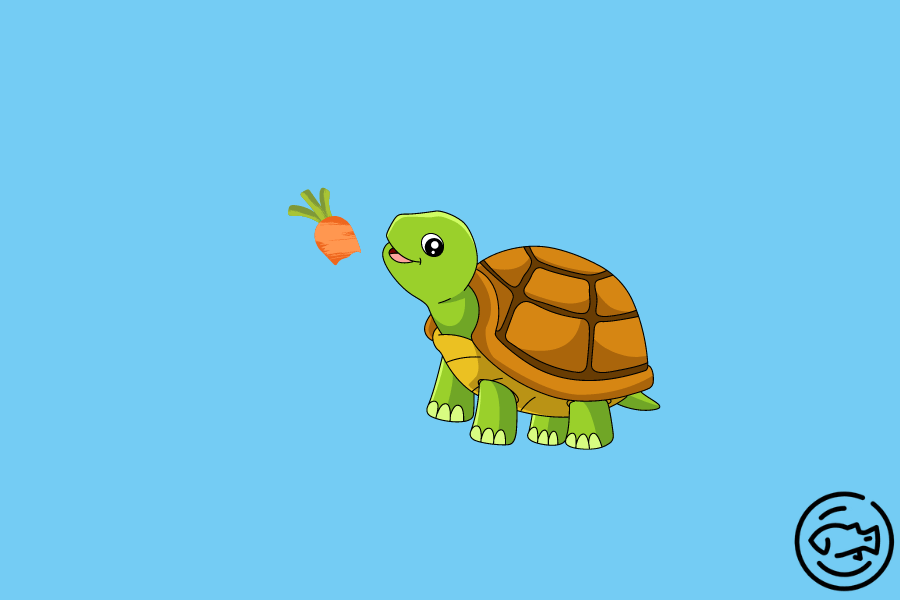
A nutrient-rich vegetable, carrots contribute significantly to a turtle’s well-being. They are loaded with crucial vitamins, minerals, and fiber that promote optimal health. Let’s delve into the benefits of carrots for turtles.
Enhanced Vision: Carrots contain vitamin A, crucial for maintaining clear vision in turtles—the high levels of beta-carotene in carrots aid in preventing vision-related issues.
Immune Booster: The antioxidants present in carrots strengthen a turtle’s immune system, protecting them from various diseases and infections.
Shell Health: Carrots offer a rich source of calcium, promoting the development and maintenance of a turtle’s strong and healthy shell.
Digestive Health: Carrots regulate a turtle’s digestive system with their high fiber content, preventing constipation and ensuring proper nutrient absorption.
Nutritional Variety: Including carrots in a turtle’s diet ensures a diverse range of nutrients, supporting overall growth and vitality.
Moreover, the crunchy carrots provide sensory enrichment for turtles, stimulating them mentally. However, it’s important to remember that while carrots are beneficial, they should be fed in moderation as part of a balanced diet.
What Do Turtles Consume?
Turtles consume a broad array of food items based on their native environment and specific species. Consequently, the dietary preference of your pet turtle will be determined by its particular type.
Turtles can be classified as either omnivores or herbivores.
Omnivorous turtles consume animal protein, fruits, and vegetables, while herbivorous turtles only eat fruits & vegetables. Let’s delve deeper into each of these classifications.
Omnivorous Turtles
The majority of domestic turtles belong to the omnivorous category. For instance, the red-eared slider, the most common pet turtle type, is classified as an omnivore. Almost all water or aquatic turtles are omnivores.
Begin by providing your omnivorous turtle with turtle pellets. Approximately 25% of your turtle’s nutritional intake should be from these pellets. These ensure your turtle receives all the essential nutrients it requires and are typically formulated to float without disintegrating in the water.
Another quarter of your turtle’s dietary intake should be derived from insects or feeder fish. These sources deliver beneficial protein, phosphorus, and calcium, which may be challenging to obtain from fruits and vegetables.
The remaining half of your omnivorous turtle’s dietary needs can be met with fruits and vegetables. Opt for fresh produce like dark leafy greens, squash, carrots, and zucchini. If your turtle is aquatic, edible aquatic plants may also be suitable. Do not overlook fruits – berries, melons, and apples are excellent choices.
Also, dust your turtle’s fresh produce with a reptile multivitamin and a calcium supplement. The purpose of these supplements is to ensure your turtle has everything it needs for a healthy life. Check the instructions on the supplement package to determine the appropriate quantity to use.
Feeding Carrots To Turtles
Carrots are a suitable addition to a turtle’s diet due to their high nutritional value and low potential for causing harm. Here are five key points to consider when feeding carrots to turtles:
Carrots provide turtles with essential vitamins and minerals, including vitamin A, which is vital for maintaining healthy eyesight.
Chop the carrots into small, bite-sized pieces to make them more accessible for the turtles to consume and digest.
However, it’s important to remember that carrots should only be given as part of a balanced diet, not as the sole food source for turtles.
Some turtles may have preferences for other types of food, so it’s essential to observe their eating habits and adjust accordingly.
Be cautious not to overfeed turtles with carrots, as disproportionate consumption can lead to weight gain and potentially affect their overall health.
Additionally, it is worth noting that while carrots are generally safe for turtles to eat, they should be introduced gradually to prevent digestive issues. As with any changes to a turtle’s diet, it is advisable to consult with a veterinarian to ensure the best feeding practices for your specific turtle species.
Concerning the true history of feeding carrots to turtles, there is no specific anecdote or incident to highlight.
However, scientific research and observations have determined that carrots can be incorporated into a turtle’s diet to provide them with additional nutrients and variety. Turtle owners have widely adopted this practice, which is a recommended part of their feeding regimen.
also read: Best Turtle Tank Substrate
Baby Turtles And Carrot Consumption
Baby turtles and their consumption of carrots are intriguing subjects to explore. Here are six critical points regarding the relationship between these adorable reptiles and this particular vegetable:
Nutritional Benefits: Carrots offer a rich source of fundamental vitamins and minerals, including vitamin A and fiber, which are crucial for baby turtles’ healthy growth and development.
Varied Diet: While a balanced diet is essential, incorporating carrots into the diet of baby turtles can provide them with additional nutritional diversity.
Quantity Control: It is crucial to offer carrots in moderation as excess consumption may result in digestive issues for baby turtles.
Preparation Method: It is advisable to finely chop or grate carrots to make them easily consumable for baby turtles, as their small jaws and teeth are not suited for eating more significant pieces of food.
Safety Considerations: Before incorporating carrots into their diet, it is essential to ensure that baby turtles are old enough and have developed a strong enough digestive system to handle this particular vegetable.
Consultation with Experts: If unsure about whether baby turtles should consume carrots or any other dietary concerns, it is recommended to seek guidance from reptile experts or veterinarians who can provide appropriate advice.
It is also worth mentioning that while baby turtles can successfully consume carrots, a diverse and balanced diet consisting of other vegetables and protein sources is equally essential for their overall health and well-being.
Understanding Turtles’ Dietary Needs
Turtles have specific dietary needs that must be understood in order to ensure their proper health and well-being. These needs include:
Balance: Turtles require a balanced diet of plant- and animal-based foods. This includes leafy greens, vegetables, fruits, and protein-rich sources such as insects and fish.
Calcium: Turtles need adequate calcium in their diet to maintain strong bones and shell development. Calcium can be sourced from foods like kale, broccoli, and calcium supplements explicitly formulated for turtles.
Vitamins and Minerals: Turtles also require essential vitamins and minerals for overall health. These nutrients can be obtained from a varied diet that includes a mix of vegetables, fruits, and commercially available turtle food.
In addition to these points, it’s essential to consider that certain species of turtles may have specific dietary requirements unique to their natural habitat. Therefore, it is recommended to research and understand the specific needs of the turtle species in question before designing their diet.
Key Takeaway
Carrots are a nutrient-rich vegetable for turtles: Carrots are packed with required vitamins and minerals that are useful for the health and well-being of turtles. They provide valuable nutrients, such as vitamin A, which supports proper growth and development.
Feeding carrots to turtles: Carrots can be included as part of a balanced and varied diet for turtles. However, it is crucial to offer them in moderation and as a complement to their primary diet of leafy greens and protein-rich foods. Too many carrots can lead to an imbalance in their nutritional intake.
Baby turtles and carrot consumption: Baby turtles have different dietary needs than adult turtles. While they can consume small amounts of grated or finely chopped carrots, it is crucial to offer them a diet that is specifically tailored to their growth and development, which may include more protein-rich foods.
Products We Recommend
| Image | Product | Price |
|---|---|---|
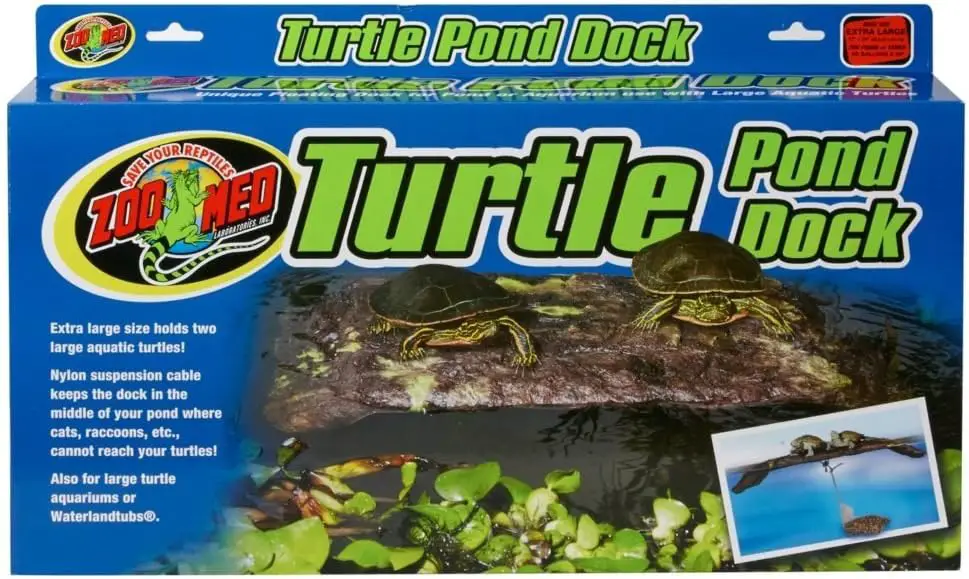 | Zoo Med Turtle Dock | Check Price On Amazon! |
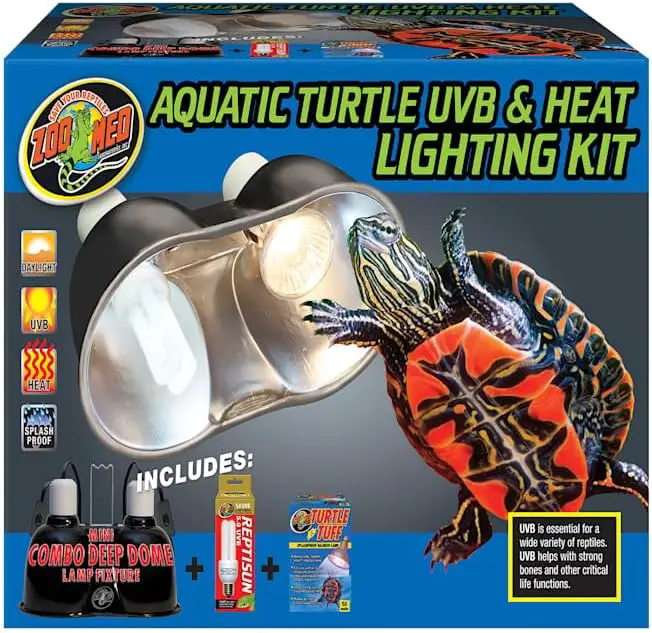 | Zoo Med Aquatic Turtle UVB & Heat Lighting Kit | Check Price On Amazon! |
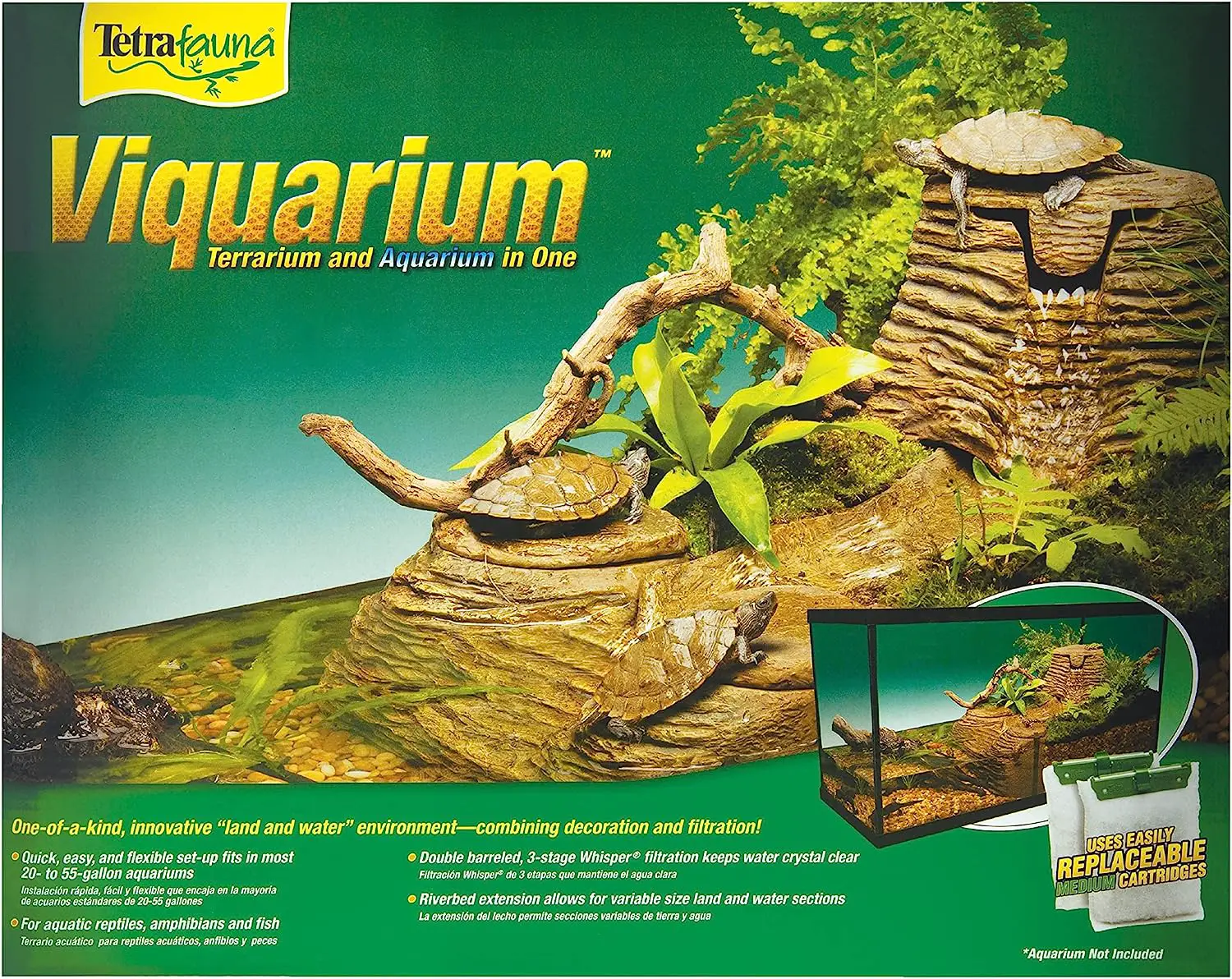 | TetraFauna Viqaquarium, All-In-One Terrarium | Check Price On Amazon! |
Conclusion
Turtles and carrots share a complex relationship. While turtles can eat carrots, they should not be their primary diet.
Carrots lack essential nutrients needed for turtle growth.
Providing a well-balanced diet containing various foods such as leafy greens and protein sources is essential. Neglecting this can lead to malnutrition and health issues for turtles.
It is essential to consult a veterinarian or reptile expert for guidance on the best diet for your pet turtle. The welfare and vitality of turtles depend on a varied and nutritious diet.
Some Facts About Can Turtles Eat Carrots
✅ Carrots are considered healthy for turtles.
✅ Carrots are high in vitamin A, fiber, calcium, and phosphorus.
✅ Feeding carrots once a day provides turtles with essential nutrients.
✅ It is recommended to feed baby turtles commercial baby turtle food.
✅ Turtles may need to be introduced to carrots mixed with their regular veggies.
FAQs About Can Turtles Eat Carrots?
Can turtles eat carrots?
Yes, turtles can eat carrots, as carrots are a healthy and nutritious vegetable for turtles, providing them with minerals like phosphorus and vitamins like vitamin A.
Can baby turtles eat carrots?
It’s best to feed commercial baby turtle food to baby turtles instead of carrots. This ensures they receive the specific nutrients they need for their delicate systems.
How should I serve carrots to turtles?
The best way to serve carrots to turtles is raw and chopped into manageable bites. Turtles also enjoy shredded carrots. Make sure to wash the carrots before feeding them to your turtle.
What else can I feed my turtle for a healthy diet?
For omnivorous turtles, you can include pelleted turtle food, insects, feeder fish, and various fruits and vegetables in their diet. Herbivorous turtles mainly need fresh vegetables and some fruits as their diet.
How can I encourage my turtle to eat carrots?
If your turtle hesitates to eat carrots, mix them with their regular veggies to make them more appealing. Sometimes, turtles need a little trick to realize that carrots are food.


